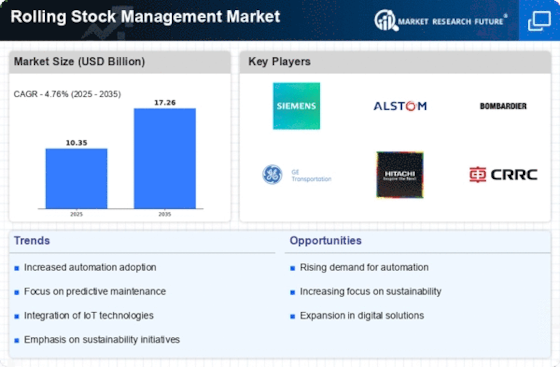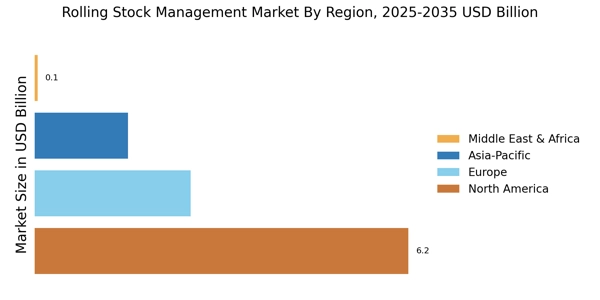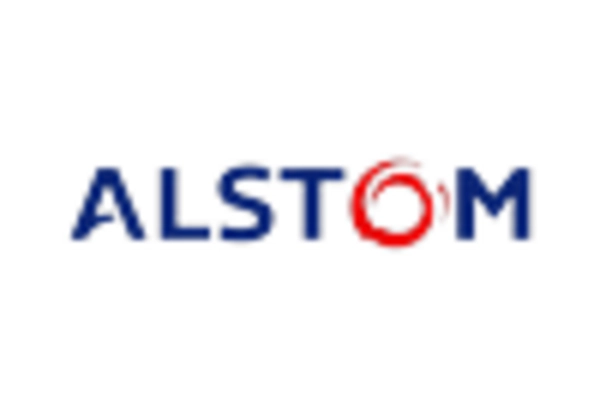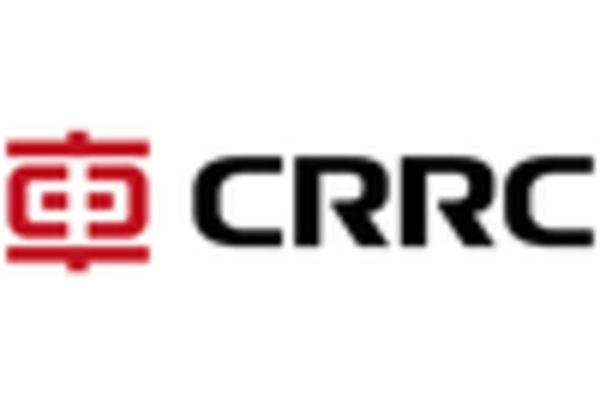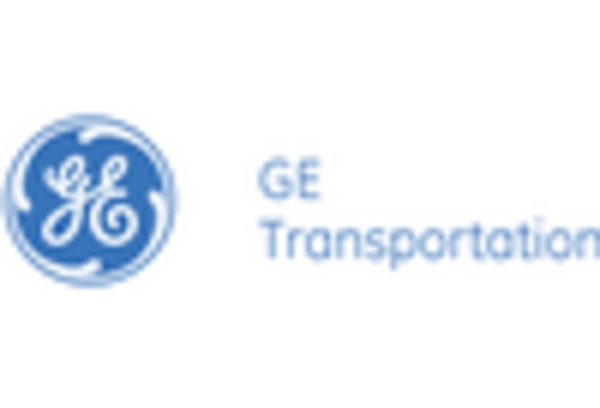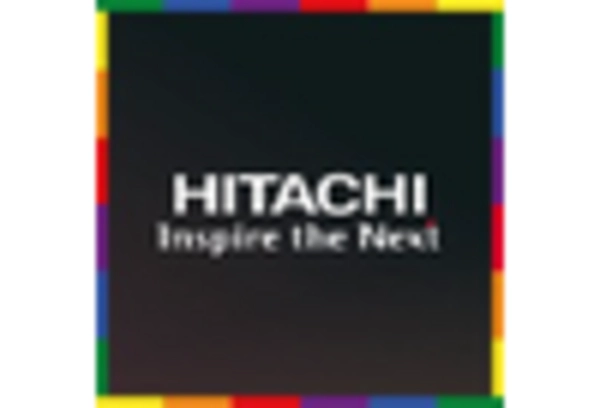Investment in Sustainable Practices
Sustainability is emerging as a critical driver in the Rolling Stock Management Market. With increasing awareness of environmental issues, stakeholders are prioritizing sustainable practices in their operations. This includes investing in energy-efficient rolling stock and adopting practices that minimize carbon footprints. Recent studies indicate that transitioning to greener technologies can reduce emissions by up to 50%. Furthermore, many operators are exploring alternative fuels and electrification as viable options to enhance sustainability. The push for sustainable practices is not only a response to regulatory pressures but also aligns with consumer preferences for environmentally responsible transportation solutions. As sustainability becomes a core focus, the Rolling Stock Management Market is likely to witness a shift towards greener technologies and practices.
Increased Focus on Safety and Compliance
Safety and compliance are paramount in the Rolling Stock Management Market, particularly as regulatory frameworks become more stringent. Governments and regulatory bodies are implementing rigorous safety standards to ensure the integrity of rail operations. This has led to an increased focus on compliance management systems that can effectively monitor and report safety metrics. The market for safety compliance solutions is expected to grow significantly, driven by the need for operators to adhere to these regulations. Moreover, the integration of safety management systems with rolling stock management platforms is becoming a common practice, enhancing the ability to track compliance in real-time. This focus on safety not only mitigates risks but also fosters public trust in rail services, thereby supporting the overall growth of the Rolling Stock Management Market.
Expansion of Rail Networks and Infrastructure
The expansion of rail networks and infrastructure is a significant driver in the Rolling Stock Management Market. As countries invest in enhancing their rail systems, the demand for effective rolling stock management solutions is expected to rise. Recent reports suggest that rail infrastructure investments are projected to exceed 300 billion dollars over the next decade. This expansion is driven by the need to accommodate increasing freight and passenger traffic, necessitating the deployment of advanced rolling stock management systems. These systems are essential for optimizing fleet utilization and ensuring operational efficiency. Additionally, the expansion of rail networks is likely to create new opportunities for service providers within the Rolling Stock Management Market, as they seek to support the growing infrastructure with innovative management solutions.
Growing Demand for Efficient Transportation Solutions
The demand for efficient transportation solutions is a key driver in the Rolling Stock Management Market. As urbanization accelerates, cities are increasingly seeking to enhance their public transportation systems. This trend is reflected in the rising investments in rail infrastructure, which are projected to reach approximately 200 billion dollars by 2026. Enhanced rolling stock management is essential to meet the growing passenger demand while ensuring timely and reliable services. Additionally, the shift towards sustainable transport solutions is prompting operators to invest in modern rolling stock that is not only efficient but also environmentally friendly. This growing emphasis on efficiency and sustainability is likely to propel the Rolling Stock Management Market forward, as stakeholders seek to balance operational demands with environmental responsibilities.
Technological Advancements in Rolling Stock Management
The Rolling Stock Management Market is experiencing a surge in technological advancements, particularly in the realm of automation and data analytics. Innovations such as predictive maintenance and real-time tracking systems are becoming increasingly prevalent. These technologies enable operators to optimize fleet performance and reduce operational costs. According to recent data, the integration of advanced analytics can lead to a reduction in maintenance costs by up to 30%. Furthermore, the adoption of Internet of Things (IoT) devices is enhancing the ability to monitor rolling stock conditions continuously, thereby improving safety and reliability. As these technologies evolve, they are likely to reshape operational strategies within the Rolling Stock Management Market, driving efficiency and enhancing service delivery.


